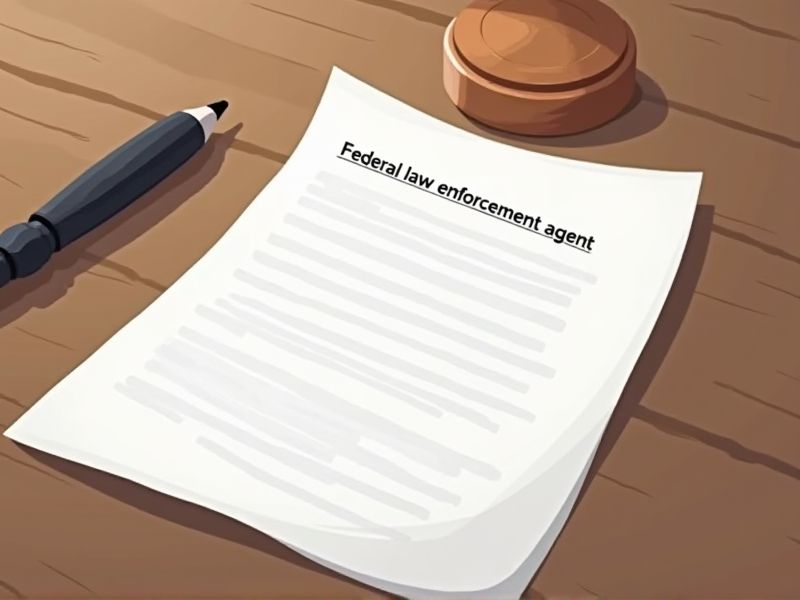
Federal law enforcement agents operate within a complex legal framework requiring precise skills and knowledge. Certifications in areas like criminal investigation, cybersecurity, and physical fitness ensure that agents are adequately prepared to tackle diverse challenges. In high-stakes situations, proficiency validated by certificates is crucial for accurate decision-making and effective operations. Key certifications might be necessary for a career in federal law enforcement.
FBI Special Agent Training Certification
FBI Special Agent Training Certification ensures federal law enforcement agents have the necessary skills to effectively investigate and solve complex crimes. The rigorous training program equips agents with critical thinking and decision-making abilities essential for high-stakes situations. Certification enhances credibility and trust, both within the agency and with the public, fostering cooperation in law enforcement missions. Standardized training creates a uniform foundation of knowledge and practices among agents, which is crucial for coordinated efforts across federal, state, and local agencies.
DEA Special Agent Training Certification
Certification in DEA Special Agent Training equips agents with the specialized skills required to combat drug trafficking effectively. The training provides a thorough understanding of drug laws, investigation techniques, and evidence handling, crucial for federal law enforcement. It ensures agents are prepared to operate safely and efficiently in high-risk situations. The certification also establishes a standardized level of proficiency across federal agencies, promoting cohesive operations.
ATF Special Agent Training Certification
The ATF Special Agent Training Certification is essential because it ensures agents are thoroughly prepared to enforce laws related to firearms, explosives, arson, and alcohol and tobacco trafficking. The certification process provides specialized instruction in investigative techniques and legal procedures critical to building solid cases. Acquiring this certification is instrumental in maintaining professional standards and accountability in law enforcement operations. The rigorous training enhances an agent's ability to operate effectively in high-stakes and complex criminal investigations.
U.S. Secret Service Special Agent Training Certification
The U.S. Secret Service Special Agent Training Certification ensures agents have the necessary skills to protect national leaders and critical infrastructure. This specialized training equips agents with expertise in areas like investigation, firearms, and protective measures, tailored to high-stakes environments. Without this certification, agents may lack the standardized skill set crucial for effective responses to complex security threats. Certified agents reflect a consistent level of proficiency across the agency, thereby enhancing coordination and operational success.
FLETC Basic Law Enforcement Training Certification
FLETC Basic Law Enforcement Training Certification ensures that all federal law enforcement agents receive a standardized foundation of skills essential for effective policing. Certification from FLETC fosters legal and procedural knowledge necessary to navigate complex jurisdictional scenarios. Agents with FLETC training are better prepared to handle high-pressure situations, which directly impacts public safety and agency credibility. FLETC certification also enhances interoperability among different agencies, improving collaboration and efficiency in federal operations.
Certified Criminal Investigator (CCI)
Federal law enforcement agents require Certified Criminal Investigators (CCI) to ensure thorough and legally compliant crime investigations. The CCI certification enhances an agent's ability to analyze complex criminal data and evidence effectively, which is essential for solving high-stakes federal cases. With certified skills, agents are more proficient in employing advanced investigative techniques that can lead to higher conviction rates. The CCI credential also fosters trust and credibility in the investigative process among federal agencies and the judicial system.
Firearms Proficiency Certification
Firearms proficiency certification ensures that federal law enforcement agents can effectively and responsibly handle their weapons in high-pressure situations. Proper certification minimizes the risk of accidents and enhances overall public safety. It is a standardized measure to assess and maintain agents' skills, providing a benchmark for competence. With technological advancements in weaponry, consistent certification helps agents stay updated on safe handling and operational techniques.
Crisis Intervention Training (CIT) Certification
Crisis Intervention Training (CIT) Certification equips federal law enforcement agents with the skills to de-escalate situations involving individuals with mental health issues, reducing the likelihood of injury or escalation. Increased encounters with people experiencing mental health crises necessitate a standard approach, and CIT provides the necessary framework for consistent response. As mental health awareness grows, public expectations for law enforcement to handle such situations responsibly increase, making CIT certification crucial for maintaining public trust. CIT certification also supports agents in identifying symptoms of mental illnesses, reducing misunderstandings and improving outcomes during interactions.
Counterterrorism and Homeland Security Certification
Federal law enforcement agents require a Counterterrorism and Homeland Security Certification to effectively identify and mitigate potential terrorist threats, as these skills are crucial in safeguarding national security. The certification provides agents with specialized knowledge on current and emerging tactics used by terrorist organizations, which is essential for preemptive measures. It also equips agents with the ability to coordinate efficiently with various agencies and respond swiftly in the event of a national crisis. The training enhances legal and ethical decision-making in counterterrorism operations, ensuring actions align with both national and international laws.
Cybercrime Investigation Certification
Cybercrime is increasingly sophisticated, necessitating specialized knowledge to effectively investigate and counteract digital threats. Federal law enforcement agents equipped with Cybercrime Investigation Certification gain vital skills in digital forensics and cybersecurity best practices. This certification enhances the ability to trace and prosecute cybercriminals who evade traditional detection methods. Furthermore, it ensures agents are up-to-date with rapidly evolving technological landscapes, critical for maintaining national security.
Summary
By obtaining additional certifications, you can enhance your expertise and become more versatile in your role as a federal law enforcement agent. This professional development often leads to increased job performance and greater effectiveness in specialized tasks. Agencies may recognize your expanded skill set, offering you more opportunities for career advancement and leadership roles. As a result, such credentials can strengthen the agency's overall operational capabilities and improve public safety outcomes.
